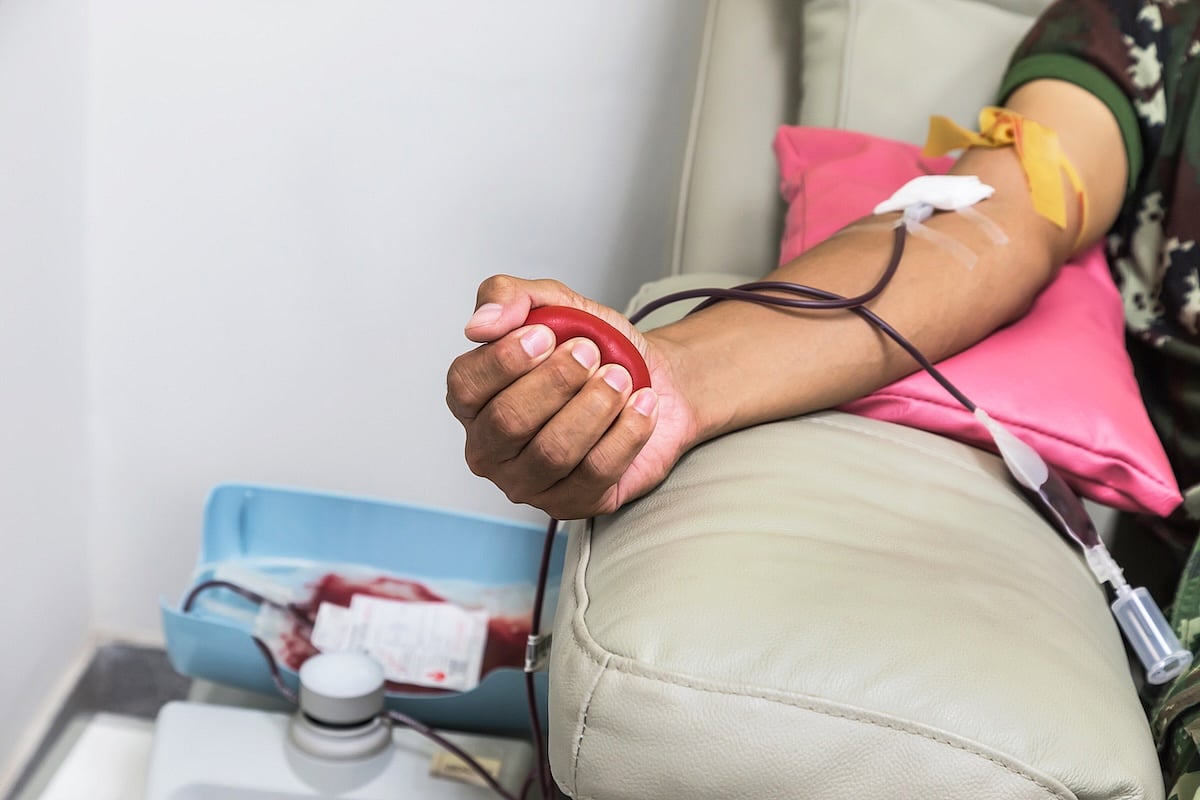Get Healthy!

- Posted September 10, 2025
Caffeine Bad News For Blood Donations, Study Says
Your morning cup of coffee might harm the quality of a blood donation provided later in the day, a new study says.
Caffeine appears to impair donated blood in ways that reduce the effectiveness of future transfusions, researchers report in the journal Haemotologica.
Specifically, they found that red blood cells are more prone to damage during storage when there are high levels of caffeine in a blood donation.
Further, results showed that transfusions of caffeine-laden blood resulted in lower increases in patients’ levels of hemoglobin, the protein in red blood cells responsible for delivering oxygen and removing carbon dioxide.
There also were greater signs of red blood cell breakdown among transfused patients, researchers said.
As many as 75% of Americans regularly consume caffeine, raising important questions regarding the quality of U.S. blood supply, researchers said.
“We’ve long understood caffeine’s effects on the brain and central nervous system, but this is the first large-scale study to demonstrate its impact on red blood cell biology,” senior researcher Angelo D’Alessandro, a professor of biochemistry at the University of Colorado School of Medicine, said in a news release.
“These findings suggest that something as common as your morning cup of coffee could have important implications for the quality of stored blood and how well it works when transfused into patients,” D’Alessandro said.
For the new study, researchers analyzed samples from more than 13,000 U.S. blood donors.
The team found that caffeine’s negative effects were particularly pronounced among transfusion recipients and blood donors carrying variants in the ADORA2B gene, which regulates how red blood cells function under low-oxygen conditions.
Currently, several European countries advise blood donors to limit their caffeine intake prior to donation, but it’s not actively discouraged in the U.S., researchers said.
In fact, caffeine might make it easier to draw blood from donors, since it increases blood pressure and enlarges blood vessels, researchers said.
“However, this advantage must be balanced against caffeine’s mild diuretic properties, which may predispose donors to dehydration,” D’Alessandro said.
Caffeine has a short half-life in the body, so refraining prior to giving blood might help improve the quality of a donation, researchers said.
These study results might also help explain why caffeine might enhance performance in exercise and sports, researchers said.
Caffeine blocks activation of the ADORA2B receptor and inhibits an enzyme called G6PD. This can elevate oxidative stress (cell damage caused by unstable oxygen molecules) and paradoxically promote adaptation during physical exertion, researchers said.
“Interestingly, we recently discovered that mice with G6PD deficiency showed improved exercise tolerance,” researcher Travis Nemkov, an associate professor of biochemistry at the University of Colorado, said in a news release.
“These findings illustrate how insights from transfusion medicine can inform our understanding of exercise physiology and broader aspects of human health,” he added.
More information
The American Red Cross has more on donating blood.
SOURCE: University of Colorado, news release, Sept. 4, 2025





